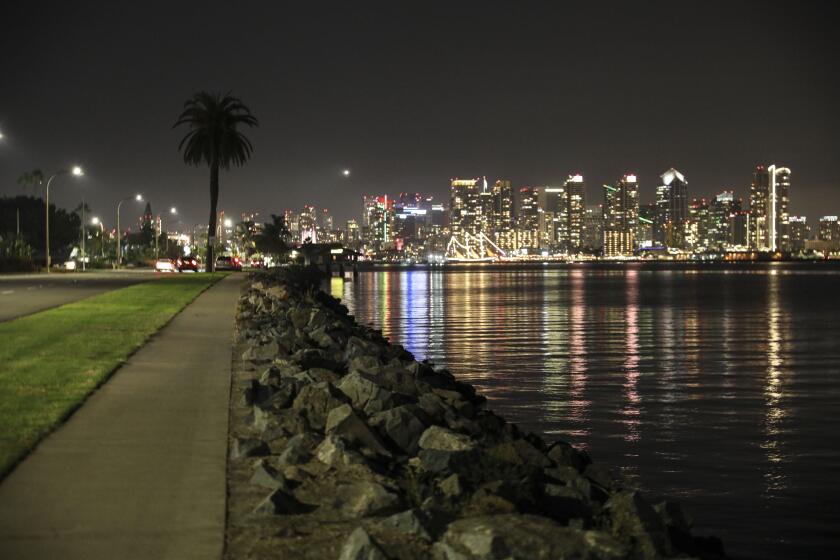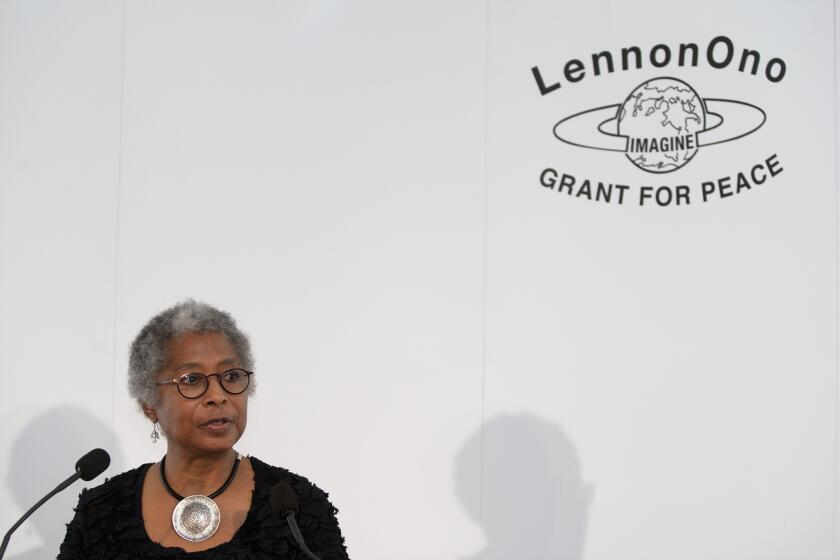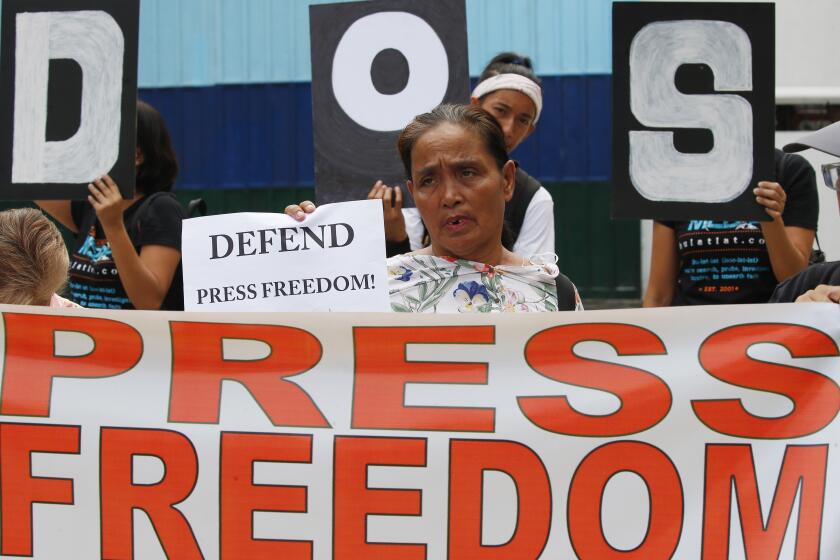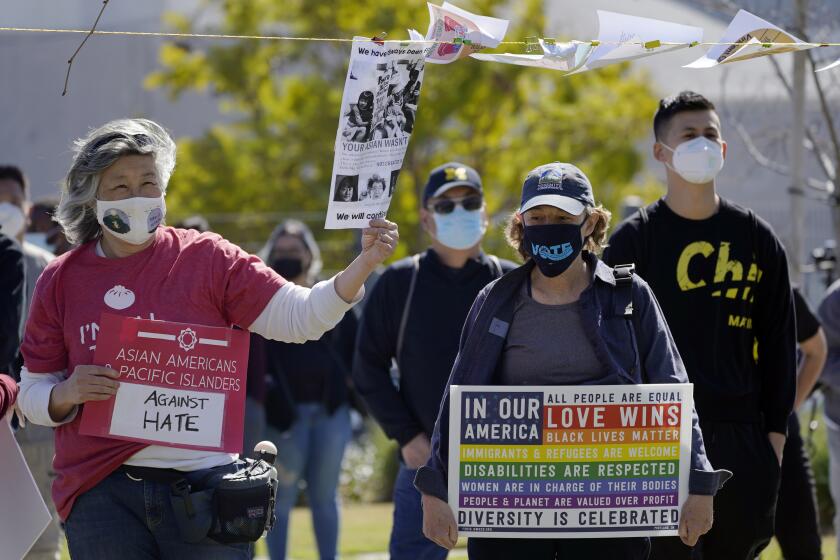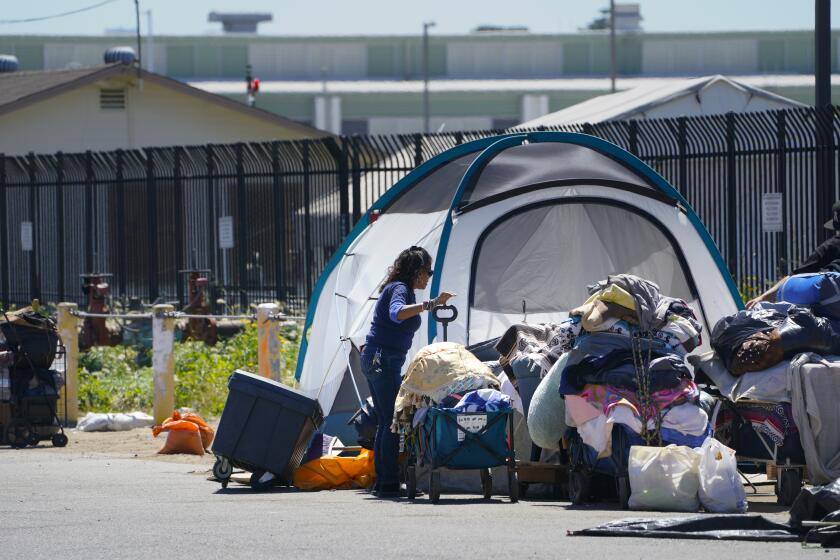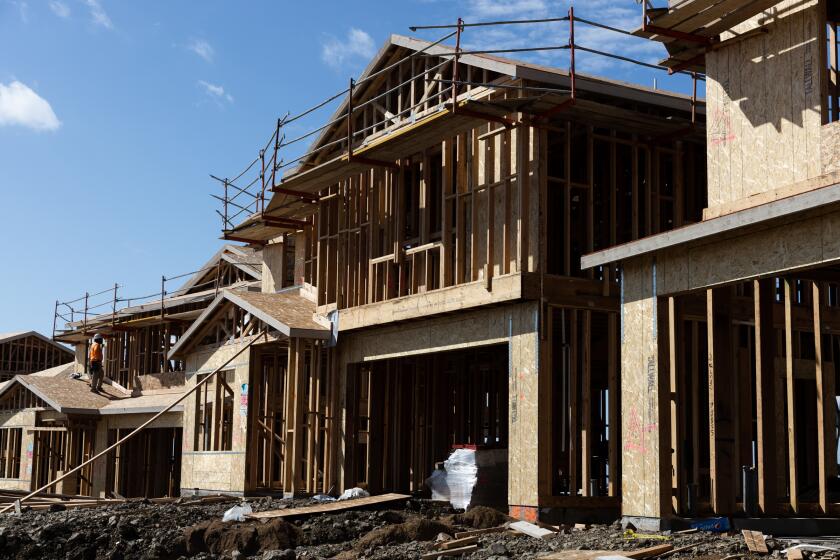Column: SD’s vaccination mandate doesn’t appear to negatively impact staffing; will that shift attitudes?
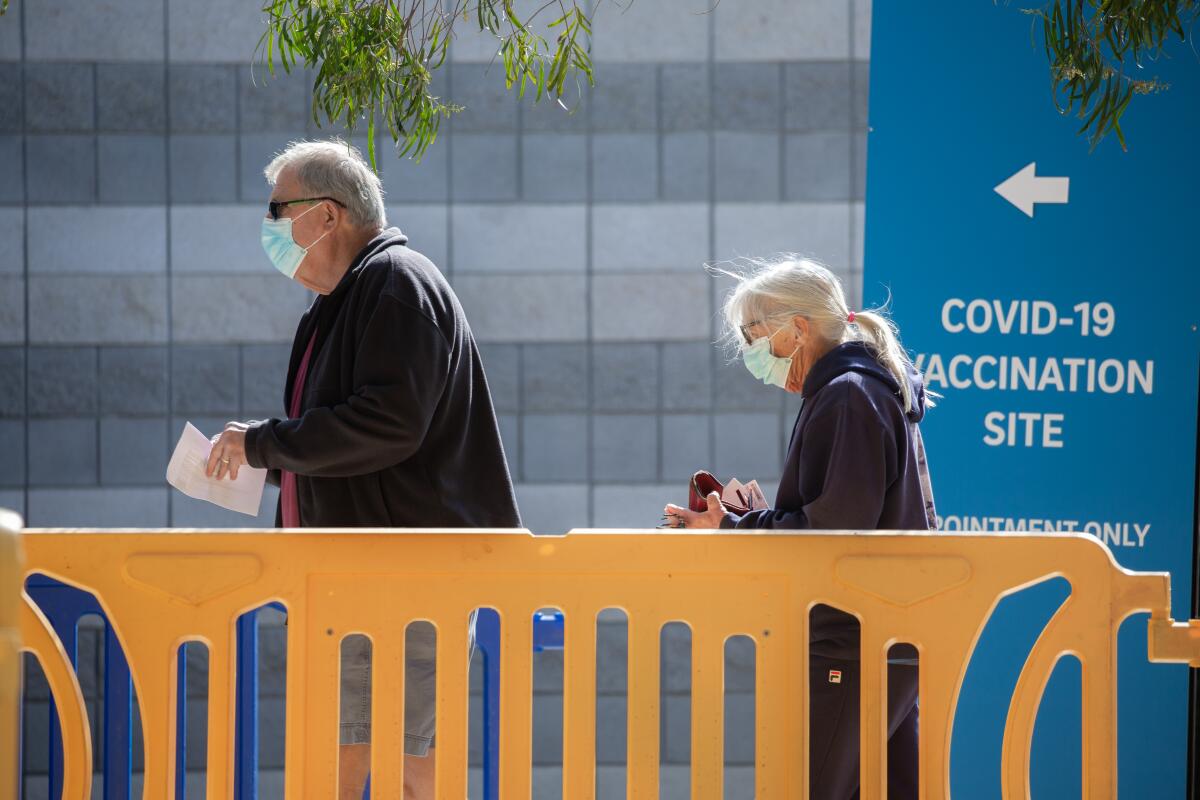
The seeming success of the city’s vaccination mandate could shift public attitudes and offers some industries a roadmap
Back in late August, when the city of San Diego became the first major government agency in the region to mandate vaccinations for employees, there were plenty of questions and debate about how exactly it would impact the city’s workforce.
I was in favor of the mandate and I respected the fortitude of city leaders who stood firm in their decision despite pushback from unions and debates about fairness. I thought the values inherent to public service and public safety are intrinsically linked with the values behind why one should get vaccinated: It’s about serving and protecting others.
At the same time, though, I did have some concerns about whether a mandate would negatively impact staffing levels and create a shortage of workers in critical public service areas because that was what we were hearing from some vocal opponents of the mandate, including the police union.
For example, a September survey by the San Diego Police Officers Association — using a limited sample size — found 65 percent of members surveyed would consider quitting if a mandate was imposed and 45 percent would rather be fired than comply.
The union’s president, Jack Schaeffer, did share at the time that he doubted nearly that many would follow through, but still it was a concern well worth monitoring as we inched closer to the city’s deadline.
However, after several months — and the city moving its initial deadline from Nov. 2. — San Diegans are finally starting to get a clearer picture of how the mandate will impact employment levels, and fortunately that picture doesn’t look particularly grim.
Late last week the U-T’s Lyndsay Winkley and David Hernandez reported that 86 advanced notices of termination were sent out after the City Council voted to move forward with the mandate in late November. The Public Utilities Department and the Police Department — with 19 and 15 staffers receiving notifications, respectively — were the most affected.
That number pales in comparison to the 11,300 employees who make up the total city workforce — 9,695 of whom are fully vaccinated. Those 86 are also significantly lower than the roughly 900 employees who received option letters in early December, warning they could be fired if they did not comply with the city’s mandate.
We still don’t know how exemptions will factor into things. Winkley and Hernandez reported that 1,095 employees had requested some kind of religious or medical exemption, so some of those could have their exemption rejected, stand firm and leave their jobs.
Still, it seems like we’re getting a clearer picture on the actual impact of the vaccination mandate. It’ll be interesting to see how that may influence public sentiment and employer attitudes.
It’s easy to view vaccination mandates as a partisan issue given how our major political parties have adopted positions that are in pretty sharp contrast on all kinds of health measures. To a certain extent, polling has supported that perspective as well.
For example, a CNN poll in December found 54 percent of respondents felt requiring proof of COVID-19 vaccination for everyday activities outside the home an acceptable way to increase the vaccination rate and not an infringement on rights, including 82 percent of Democrats, 26 percent of Republicans and 48 percent of independents.
However, when that vaccination mandate translates to employment specifically, things get significantly more complicated.
A national poll by Axios/Ipsos last month found 54 percent of respondents supported their employer requiring employees be vaccinated and 65 percent supported their employer requiring all employees and customers be masked in their workplace. However, at the same time, 51 percent supported making it illegal for companies to deny employment to the unvaccinated, including 55 percent of Republicans, 46 percent of Democrats and 51 percent of independents.
I find that divide fascinating, especially because that same survey found that a vaccination mandate is one of the few successful ways to persuade the unvaccinated to get the jab — that’s coming from the unvaccinated themselves.
According to the survey, about half the unvaccinated polled expressed openness to the vaccine, and among them about half said an employer mandate would convince them to get the shot.
That’s why it’ll be interesting to see what comes next, now that the city’s mandate is in effect. It’s even more intriguing taken with the news Thursday that the U.S. Supreme Court has blocked the Biden administration’s vaccine-or-test rule for businesses.
The court, however, is allowing the vaccine mandate for health care workers to take effect.
I don’t see that ruling impacting what the city has done, but it does put the issue back in the court of private sector leaders — the group that should be most inclined to take a close look at the impact of the city’s mandate.
I would argue the city’s approach was largely a success, because the vaccination rate we’re seeing among city employees is high and the mandate appears on pace to minimally impact hiring levels.
It should serve as a case study of sorts for employers because it, and the previously mentioned polling, suggests that there likely will not be a mass exodus of employees if a business chooses to require vaccination as part of employment.
Now I want to be clear, I don’t think that vaccination mandates should be applied to all businesses and industries. That could cause a lot of undue harm and would be illogical, given that not every industry interacts directly with the public.
But for industries where success relies on having the public trust — such as hotels, restaurants, casinos and cruise ships, for instance — maybe the city’s approach can serve as a roadmap for supporting commerce and the safety of the community at-large.
Get Essential San Diego, weekday mornings
Get top headlines from the Union-Tribune in your inbox weekday mornings, including top news, local, sports, business, entertainment and opinion.
You may occasionally receive promotional content from the San Diego Union-Tribune.

